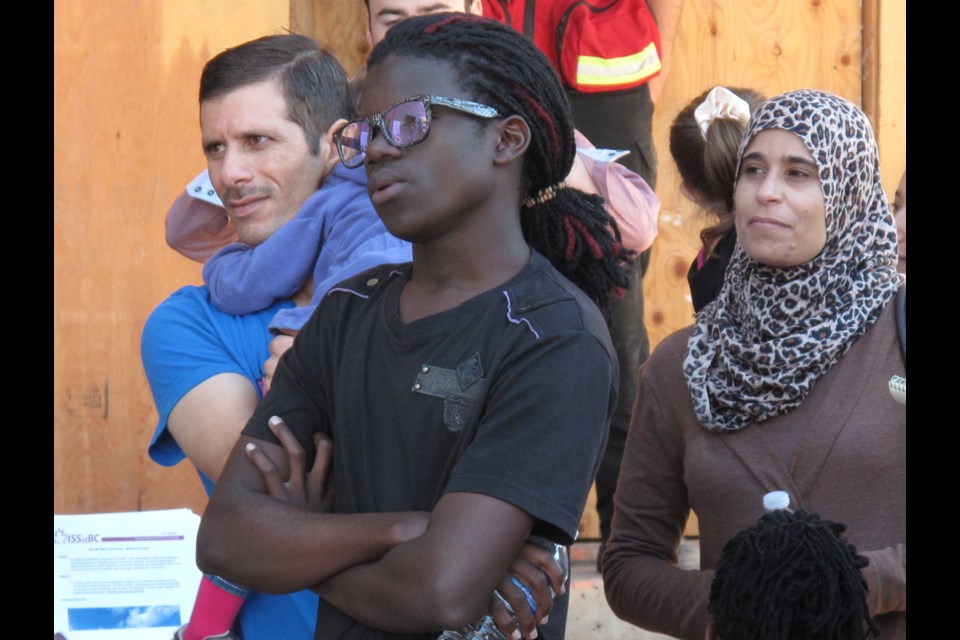On Tuesday, Malcolm Atia was in a refugee camp in Kenya.
By Wednesday, he was in Vancouver.
And on Thursday, the 20-year-old Ugandan was among a crowd of refugees from Liberia, Somalia, Burundi and Syria who attended a news conference to learn about the progress of "Welcome House," a $24.5 project on Victoria Drive that will serve as a one-stop housing and support centre for refugees.
"This is all very different for me," said Atia, who is gay and fled Uganda for fear of becoming a victim of the widespread hatred of gay people, largely fuelled by the country's anti-homosexuality legislation.
The hatred was evident in his own family. His parents died when he was young and he was raised by an aunt and uncle, who Atia said wanted to "turn me over to a mob to beat they 'gayness' out of me."
Atia spent two years in a refugee camp in Kenya before Canada accepted him as a government-assisted refugee. He flew from Kenya via London to Vancouver -- a 17-hour journey -- and now resides downtown at a building operated by the Immigrant Services Society of B.C.
"When I first learned I was going to Canada, I said 'OK, that is good' because no one will prosecute me for who I am," he said, noting his dream is to attend a theatre arts program. "And maybe one day, I will be an amazing actor."
Atia's story and those of other refugees have become more poignant in recent weeks as people worldwide were shaken by the photograph of three-year-old Alan Kurdi's body washed up on a shore in Turkey. The image intensified the struggle of Syrian refugees and the plight of 60 million people on the move from chaos and trouble across the world.
The global refugee crisis is now an issue for political leaders campaigning for votes in the federal election and inspired the City of Vancouver to host a forum earlier in the week on what residents can do to help refugees, including sponsorship and donations.
Mayor Gregor Robertson hosted the forum and was joined by two panelists, including Chris Friesen, the director of settlement services for the Immigrant Services Society of B.C. Friesen spoke at Thursday's news conference, saying the project at 2610 Victoria Drive is redefining a new international model for the integration of refugees.
When Welcome House opens in May, it will have room for up to 130 beds, settlement services, a medical clinic, support programs for victims of trauma, space for youth, classrooms, a daycare and a large kitchen and community room.
"We have had a constant stream of governments from around the world dropping by to see us," he said, noting a 22-member delegation from Denmark visited the site last week. "So it has global attention, it's providing hope and a promising practice of how refugees should be treated, should be served here in Vancouver and around the world."
Majd Agha, 22, a Syrian refugee who arrived in Vancouver in June 2014 via a refugee camp in the Phillipines, spoke at the news conference and said he was "jealous not to be staying here" when the facility opens.
But the New Westminster resident, who said he was treated well upon his arrival as a government-assisted refugee and now has a job and attends school, urged the federal government to "do more" to take in refugees and reunite families left behind in war-ravaged countries. Agha left his parents and two sisters in Syria.
"It's just so horrible to be in a safe place but thinking about your family and your parents every single day and knowing that some day you might wake up one day knowing you might not be able to talk to them," he said, telling the Courier after his remarks that the Canadian government denied his family tourist visas. "I feel homesick every day."
mhowell@vancourier.com
@Howellings



